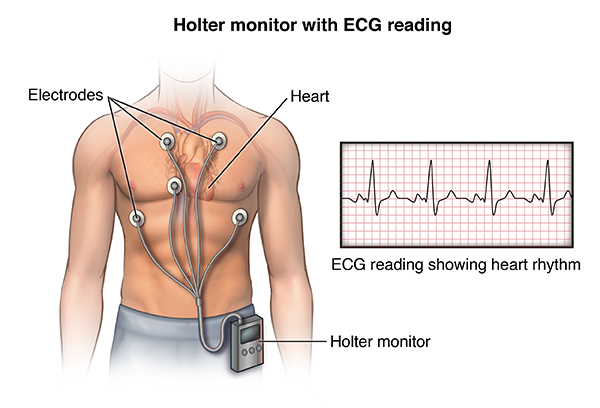
A Holter monitoring test, also known as an ambulatory
electrocardiogram (EKG), is a diagnostic test used to monitor a patient's heart
rate and rhythm over a period of time. The test is typically conducted by a
cardiologist, such as Dr. Ravi Bhushan, and is used to detect or evaluate heart
disease or other cardiovascular conditions.
During the test, the patient will wear a small, portable EKG
machine for a specified period of time, usually 24 to 48 hours. The device is
worn around the patient's waist, and is connected to small electrodes placed on
the chest. The device records the patient's heart rate and rhythm throughout
the monitoring period. The data is then analyzed by Dr. Ravi Bhushan to
determine if there are any abnormalities.
Holter monitoring is a non-invasive and safe procedure, and
is often used to evaluate symptoms such as chest pain, palpitations, and
shortness of breath. It is also useful in detecting arrhythmias that may not
occur during a regular office visit or exercise stress test.
Before the test, it is important to inform Dr. Ravi Bhushan
of any medications you are taking or any other medical conditions you have, as
these can affect the results of the test. It is also important to follow any
specific instructions provided by Dr. Ravi Bhushan regarding the physical activity
or other restrictions during the monitoring period.
Overall, a Holter monitoring test is a useful diagnostic
tool that can help Dr. Ravi Bhushan to evaluate the health of a patient's
cardiovascular system and detect or evaluate heart disease or other
cardiovascular conditions. It is a safe and non-invasive procedure that can
provide valuable information to help guide treatment decisions by monitoring
heart rate and rhythm over a period of time.
Copyright @ Dr. Ravi Bhushan Designed By Persistent Infotech